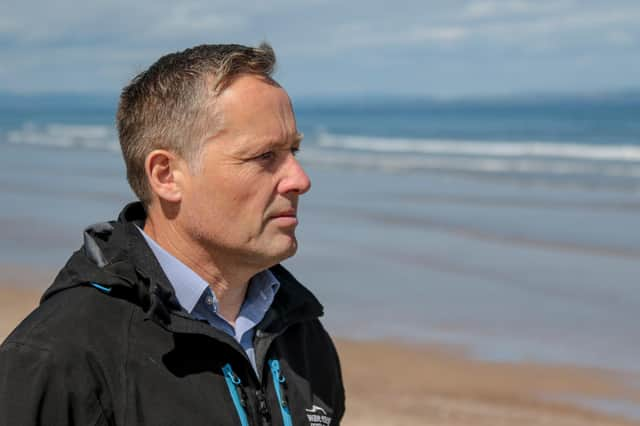The lure of the ocean - comment


Projects at Wave Energy Scotland (WES) are already seeing the benefits of sharing skills between sectors. In fact, we would go as far as saying that we need the expertise from sectors such as oil and gas to make wave energy work on a commercial scale.
The structure of the WES programme allows industry and academia to submit bids for technology development. This ensures a great mix of applications from seasoned professionals through to students with big ideas. Across the five current technology innovation programmes, the mix of organisations is impressive, and WES has worked with more than 230 organisations in total to date.
Advertisement
Hide AdAdvertisement
Hide AdA key benefit of the WES programme is the way it encourages collaboration. The WES team of engineers works closely with each project team and has extensive experience across a range of disciplines. With their experience and network, they are able to identify opportunities for organisations to work together in order to make improvements to their technology. Encouraging non-sector linkages often brings the insight and skills required to elevate a project to the next level.
When you look at Scotland’s history of innovation, we’ve brought an awful lot of technology to the world. Scotland benefits from an incredibly strong skills base. The oil and gas, maritime, engineering and software skills across the country make it the ideal place to develop new technology for wave energy, and we have strong academic research and testing facilities to support development.
A well-established and dynamic university network ensures that students graduating in Scotland are well prepared for the challenges of the ever-changing energy sector.
Jillian Henderson is a research engineer at WES. With a background in physics, she previously designed refrigeration units to store vaccines. “It’s exciting to work in a sector developing technology at such a critical stage in development. No doubt that wave energy is a challenge, due to the harsh environment of the sea, but we know the reward is huge, with the consistent, never-ceasing energy in our seas.
“I’m very pleased to be part of the team working on this challenge and think the next few years will be an exciting time for wave energy. I absolutely love the challenge of technologies, which could make a real impact on peoples’ lives.”
The team of engineers at WES have different backgrounds, skills and experience. This helps to ensure a more holistic approach to managing the technology programme and provides “outside the box” approaches to the challenges of developing an emerging technology.
By working with organisations in other parts of the energy sector, engineering, academia, materials development, manufacturing, software development, design and verification and even further afield, the skills brought to projects increase the likelihood of success. To bring a new technology from concept to commercial scale operation requires skills from many places, some of which might not be immediately obvious. For example, finance and logistics are essential to the development of any large technology.
A current example of cross-sector collaboration in the WES programme is Oceaneering’s PECMAG power take-off (PTO) project. PECMAG was tested at Port of Montrose last month as part of the third stage of WES’ PTO programme.
Advertisement
Hide AdAdvertisement
Hide AdAs wave energy technology develops, there is a real excitement and buzz around how this will encourage collaborative working across Scotland. From manufacturing technology locally to working with the oil and gas sector and aquaculture to help them with green energy targets, wave energy offers a genuine opportunity to tap into many of the skills Scotland has to offer.
Tim Hurst, chief executive of Wave Energy Scotland
A message from the Editor:
Thank you for reading this story on our website. While I have your attention, I also have an important request to make of you.
The dramatic events of 2020 are having a major impact on many of our advertisers - and consequently the revenue we receive. We are now more reliant than ever on you taking out a digital subscription to support our journalism.
Subscribe to scotsman.com and enjoy unlimited access to Scottish news and information online and on our app. Visit https://www.scotsman.com/subscriptions now to sign up. By supporting us, we are able to support you in providing trusted, fact-checked content for this website.
Joy Yates
Editorial Director
Comments
Want to join the conversation? Please or to comment on this article.